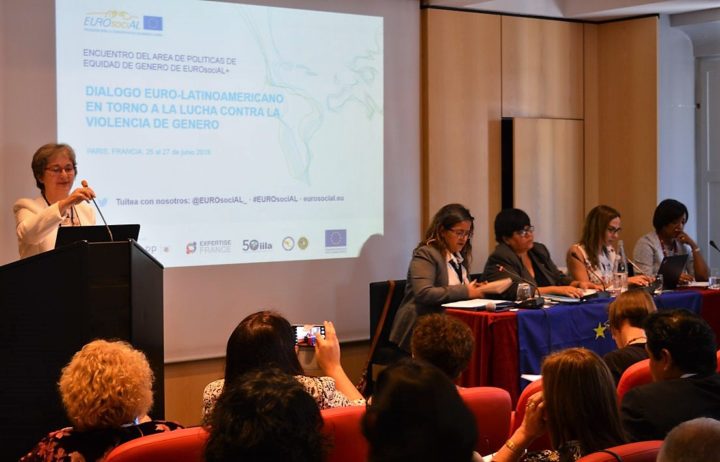The meeting on gender in this programme organised in Paris combined technical approaches from Europe and Latin America and the practical experiences of local French entities

The fight against gender violence has taken the lead over other historical issues both in Latin America and in Europe. Violence comes in multiple forms in the public space (transport and street, sexual harassment at work), in the private sphere (physical, psychological, property, economic, verbal violence) and on an international scale with trafficking and prostitution networks. The work currently being done in the different countries of Latin America, which is where EUROsociAL focuses its attention, is centred on building and strengthening tools to enforce the laws and change the view of the front-line officials in the field.
The meeting on gender organised by the Casa de América Latina in Paris promoted a technical and political dialogue between Europe and Latin America in the search for joint solutions in the fight against gender violence in its different manifestations, from harassment to femicide, to continue improving public policies, social cohesion and citizen participation in Latin America.
Surveys on prevalence in population and administrative data that account for the answers given to citizens are indispensable tools for promoting change. A very small proportion of these violent events are reported, the violence that is reported is rarely penalised either in Europe or Latin America.
In this context, EUROsociAL promotes different actions to support the countries of Latin America in drawing up and improving policies to combat gender violence, including the mobilisation of the European offer of good practices; facilitating multidisciplinary dialogue between justice and social service operators around common goals and provisions; optimising the coordination of the whole chain (ranging from improvements in the penalisation of perpetrators of violence to better accompanying, protecting and compensation victims); and prevention and education, particularly for men and young people of both sexes.
This meeting on violence against women transitioned from discussion to field work by being introduced to six experiences in combating gender violence in the districts and towns of metropolitan Paris. Participants experienced first-hand the these exploratory walks to promote the use of public space for women with the Paris Macadam association, the specialised care in five types of shelters of the L’Escale association, the comprehensive care offered by the Women’s House of Seine-Saint Denis, urban security for women in Ivry, the coordination of stakeholders in Malakoff, the local vision of the fight against gender violence of the town council of La Courneuve, and the network to fight gender violence and promote the participation of women in Paris’s 18th district.
EUROsociAL+



